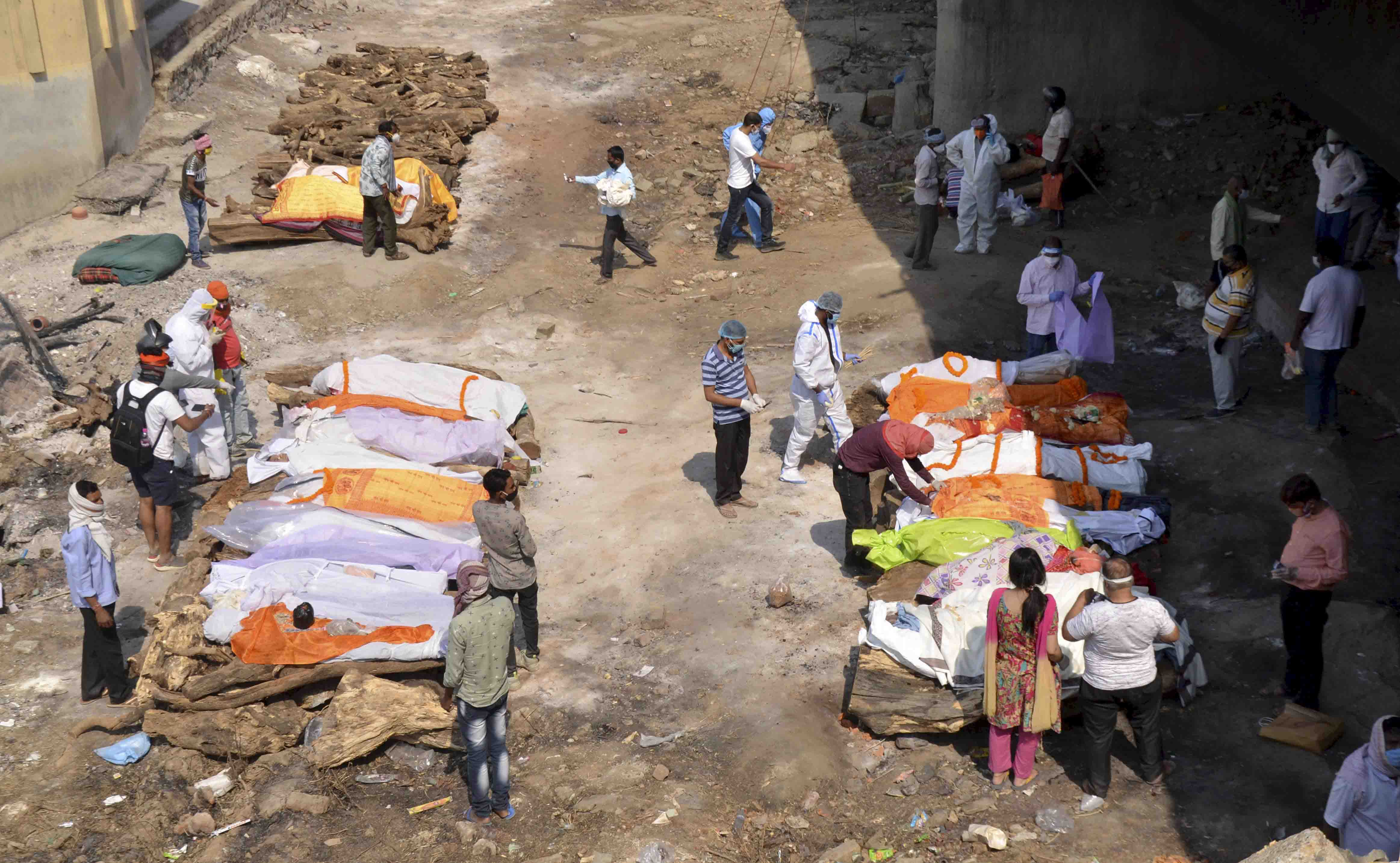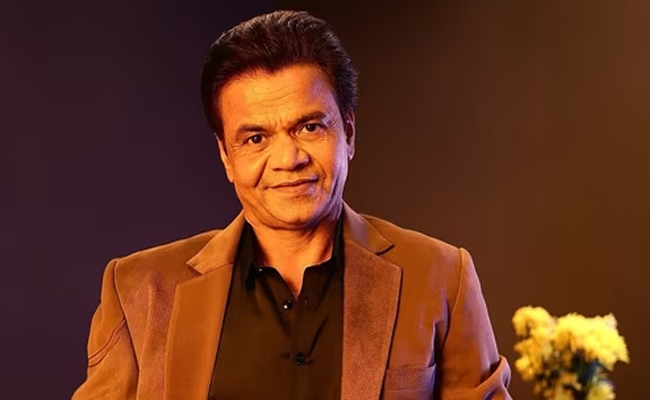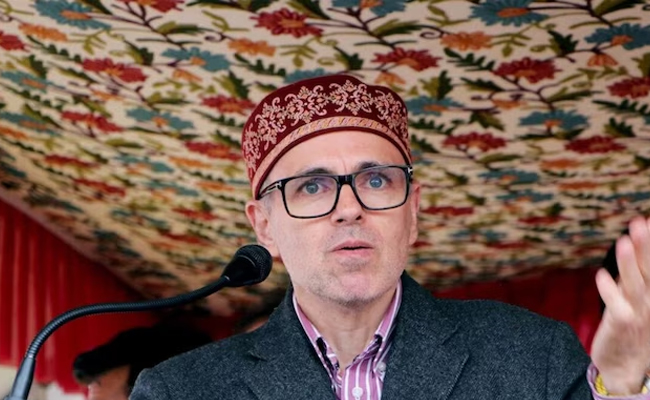This report was first published in sputniknews.com and has been posted here without any alterations or editing. To read the original report, CLICK HERE
Eminent Indian economist Dr Arun Kumar, the Malcolm Adiseshiah chair professor at the New Delhi-based Institute of Social Sciences, believes that the second COVID wave will “hamper” India’s macro-economic recovery, be it in terms of GDP growth, unemployment rate, or investor and business confidence.
A devastating second COVID wave has hit India while it was recovering from the economic fallout of the first wave last year, which pushed its economy into recession and resulted in a GDP contraction of over 8 percent, the worst ever recorded.
Although major financial institutions such as the World Bank and the International Monetary Fund (IMF) have forecast that the Indian economy will bounce back with a growth rate of 7-12 percent in 2021-22, Indian economist Dr Arun Kumar in an interview with Sputnik shares that the economic fallout of the second COVID wave will disprove these projections.
Sputnik: How badly has the second COVID wave affected India’s economic recovery?
Dr Arun Kumar: While we are not expected to have a full-scale national lockdown like last year, restrictions by local authorities in different states will hamper India’s economic recovery. India witnessed a dramatic Gross Domestic Product (GDP) slump last year, and the economy was still in the recovery mode when the second COVID wave hit the country this month.
Although the government claimed, earlier in January this year, about the Indian economy bouncing back from last year’s slump, I argue that it was still down by a good 10 percent compared to January last year.
The economic activity in April-May last year, when the national lockdown was in place, was down by 75-80 percent. All the economists, including myself, were of the view that it would recover dramatically this year. However, with several states imposing individual lockdowns as well as different forms of restrictions, the economic activity is expected to remain lackadaisical.
You have states like Maharashtra and Karnataka imposing lockdowns, thus disrupting national supply chains. The extent of economic damage will only be controlled by how fast we are able to vaccinate the population.
As far as the unemployment rate is concerned, I expect that to rise too in the coming days. A lot of migrant workers are returning to their villages from cities due to the current wave. So, employment numbers, which had been reviving before the second wave, will be hit again.
Overall, the GDP will be hit, employment will be hit. However, most worryingly, the consumer confidence will take a hit too. The consumer confidence was already down last year due to uncertainty around jobs, incomes, and business activity. It had gradually started to revive till the current wave struck.
I would also like to flag that investor confidence will be badly hit. Businesses will be wary of investing in the economy. These are not good parameters.
The situation might not be as bad as it was last year, but it will still be considerably bad. I expect that the recovery rate will be 15-20 percent lower than what was originally expected.
Sputnik: In its World Economic Outlook earlier this month, the IMF forecast a 12.5 percent growth rate for India. Now, with the second wave hitting hard, how well-placed is New Delhi to meet the projection?
Dr Arun Kumar: The IMF is not an independent data collection institution. They rely on government data to make their projections. And our government data only covers the formal sector of the economy. The informal sector has been hit very badly due to the nationwide lockdown last year. But that is not a part of the government's quarterly economic growth projections.
As the unorganised sector, which is said to contribute almost half of the overall GDP, was hit and not included in the government's projection, I would say India’s overall GDP fell by almost 30 percent. The government, however, says that it fell by only 8 percent.
So, the IMF’s projections were meaningless as it didn’t have the unorganised sector data.
Sputnik: The current COVID wave in India is affecting many younger persons too, many of them constitute India’s working age population. What are the medium and long-term implications?
Dr Arun Kumar: Our medical infrastructure has clearly not been able to cope with the second wave. We are already witnessing people dying due to shortages of oxygen and hospital beds, them not being able to get life-saving drugs due to various reasons. Workers are migrating to rural areas, many of them untested. They are taking the disease to the rural areas. This current COVID wave is affecting the small towns and villages of the country, unlike the first wave, which was mostly confined to big cities.
The current situation is a recipe for social chaos, as people simply don’t know how to respond. Main breadwinners of families are getting infected in small as well as big cities. I suppose such a bleak scenario directly affects the emotional, and not only the financial, wellbeing of people.
A sense of despondency has gripped people. People no longer feel like working. People are losing hope about the future. The faith in the government has also been badly shaken. These are not good signs for the country.
Sputnik: How do you see the government’s economic response to the COVID-induced economic crisis?
Dr Arun Kumar: Only 2 percent of the GDP was allocated towards the economic response to the COVID crisis in real terms by the government last year. The bulk of the $375.1 billion "Atmanirbhar Bharat" package was given in the form of credit, most of which wasn’t even utilised as the economic activity had been hit.
In other words, the government has not done what needs to be done to revive the economy. The demand is short. When the demand is short, the private sector will simply not revive.
The lesson that must be learnt is that only by boosting demand would we be able to revive private sector growth and industry. Only then will the economy revive.
Another drawback of the government’s response is a lack of investment to deal with the economic slowdown. On one hand, the government talks about investing and on the other hand, it is disinvesting from public sector enterprises. Overall, the net investment is very low. The net investment hasn’t increased at all, either last year or this year.
The private sector can’t boost the economy on its own. It needs government support.
The government wasn’t prepared for the second wave at all. I had warned in my book last year that the second wave could be deadlier than the first wave. The government let its guard down and prematurely declared victory over the pandemic. Instead of ramping up the testing capacity and upgrading medical infrastructure, the government allowed election rallies and other public events to take place.
Courtesy: sputniknews.com
Let the Truth be known. If you read VB and like VB, please be a VB Supporter and Help us deliver the Truth to one and all.
New Delhi (PTI): Actor Rajpal Yadav walked out of Tihar Jail on Tuesday evening after the Delhi High Court permitted his temporary release from jail in cheque bounce cases.
After all formalities were completed, Rajpal Yadav walked out of Tihar jail around 4.50 pm, a source said. He was granted relief after submitting Rs 1.5 crore to the complainant.
Speaking to reporters outside the jail, Yadav said he has received unwavering support from across the country.
“In 2027, I will have completed 30 years of working in Bollywood. Everyone has been with me. That is why I could do 200-250 films,” Yadav said.
The actor said he has always complied with the directions of the high court and would continue to do so, adding that he was available whenever required.
"The love and backing of people from across the nation remain with him, and that if there are any allegations, he is ready to respond fully and transparently," Yadav said.
“If anyone wanted legal details, they could speak to my advocate,” he added.
Justice Swarana Kanta Sharma granted interim suspension of the six-month sentence after noting that Yadav had deposited Rs 1.5 crore to the complainant, M/s Murali Projects Pvt Ltd.
"We are granting you an interim suspension of sentence... It is till the next date of hearing," the court said, while directing Yadav to surrender his passport and not leave the country without prior permission. The court also ordered him to remain present, either physically or virtually, on the next date of hearing on March 18.
Yadav had sought suspension of his sentence citing a marriage in his family on February 19.
Delhi: Actor Rajpal Yadav has been released from Tihar Jail pic.twitter.com/4iz1Jdbsi9
— IANS (@ians_india) February 17, 2026





